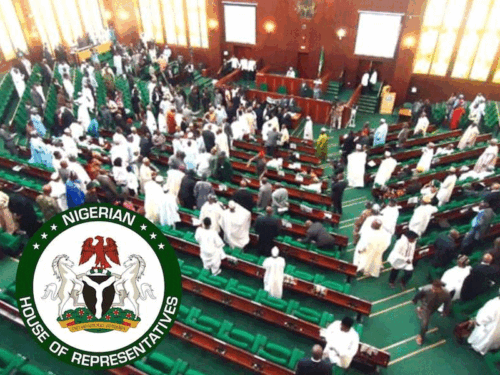The House of Representatives has passed through Second Reading a bill which seeks to ensure that bills passed by the National Assembly are transmitted to the President for assent within seven days.
The bill seeks to amend the Acts Authentication Act, 2004 with a view to provide the timeframe for the performance of functions of the Clerk of the National Assembly and for related matters, was jointly sponsored by the Speaker, Hon. Tajudeen Abbas; Deputy Speaker, Hon. Benjamin Kalu and five others.
Leading the debate at the plenary on Tuesday, Hon. Patrick Umoh, said the Acts Authentication Act, 2004 was enacted to provide for the authentication and recording of Acts of the National Assembly.
He explained that it also prescribed certain duties to be performed by the Clerk of the National Assembly in preparation for, and including, the presentation of bills to the President for his assent.
Umoh added that the enactment took effect on the 1st of January, 1962.
The lawmaker added that the extant Acts Authentication Act, Cap. A2 LFN, 2004 contains certain defects that hinder the timely transmittal of bills passed by the National Assembly to the President for his assent.
He said: “Sections 2 and 3 of the extant Acts Authentication Act task the Clerk of the National Assembly with the important duty of preparing and authenticating a clean copy of each bill passed by the National Assembly and presenting the Schedule and copy of such bill to the President for his assent respectively.
“However, it fails to prescribe an ascertainable time within which these duties must be carried out. This deficiency in the Acts Authentication Act has directly resulted in the undue delays observed in the process of transmittals of.bills passed by the National Assembly to Mr. President for his assent.”
Umoh pointed out that Section 58(3) of the Constitution stipulates that: “Where a bill has been passed by the House in which it originated, it shall be sent to the other House, and it shall be presented to the President for assent when it has been passed by that other House and agreement has been reached between the two Houses on any amendment made on it.”
He emphaised that there is no time frame given within which the Clerk of the National Assembly performs this specific function of ensuring that the certified true copy of bills gets to the President for his assent.
According to him, If this is cured, then we would be able to isolate the challenges related to the computation of 30 days required by the Section 58(4) of the Constitution of the Federal Republic of Nigeria, 1999 (as altered), within which the President is expected to signify that he assents or that he withholds his assent.
“If the timeline is fixed for transmittal of bills passed by the National Assembly, then it would be clear when to begin to count the 30 days within which the President would assent or withhold his assent. On the other hand, if transmittal time is not clearly specified, it becomes difficult to assess the time allowed for the President to assent,” Umoh added.

